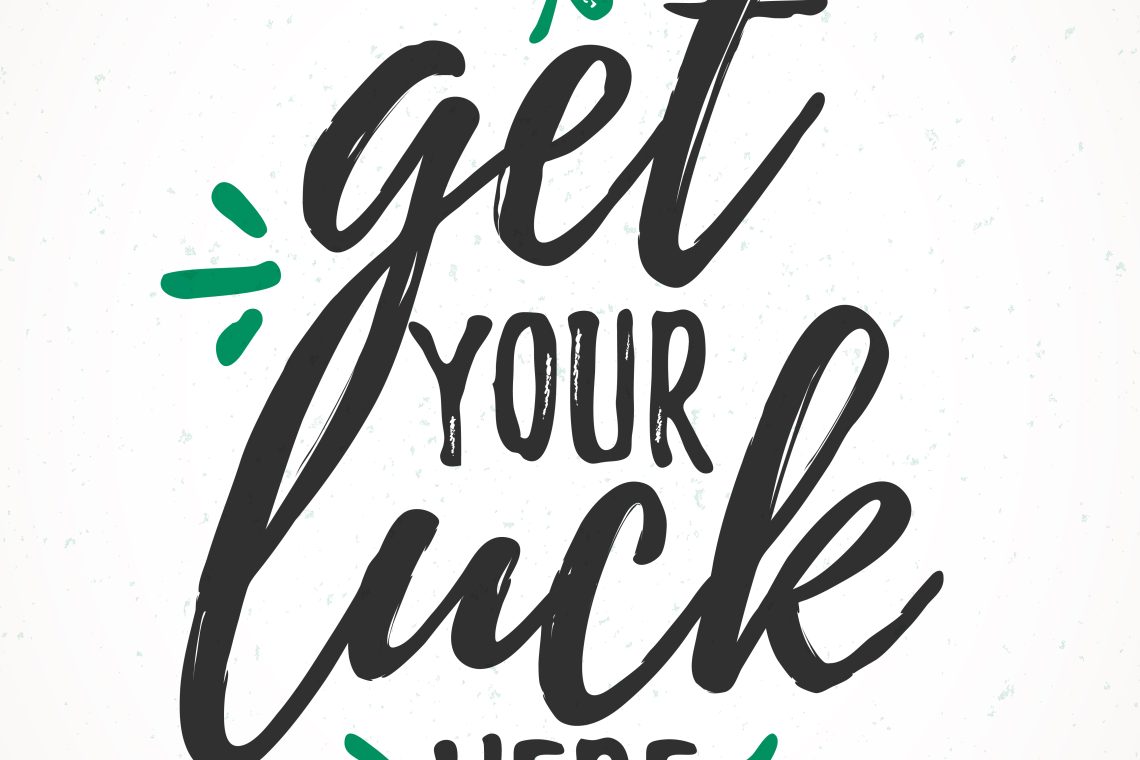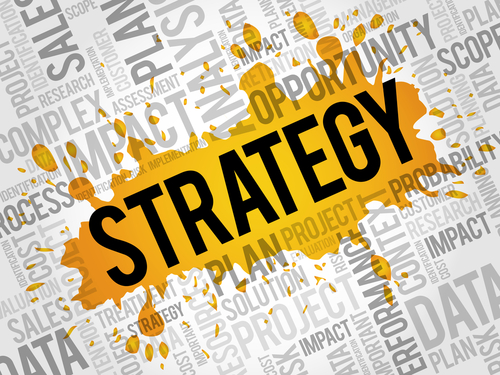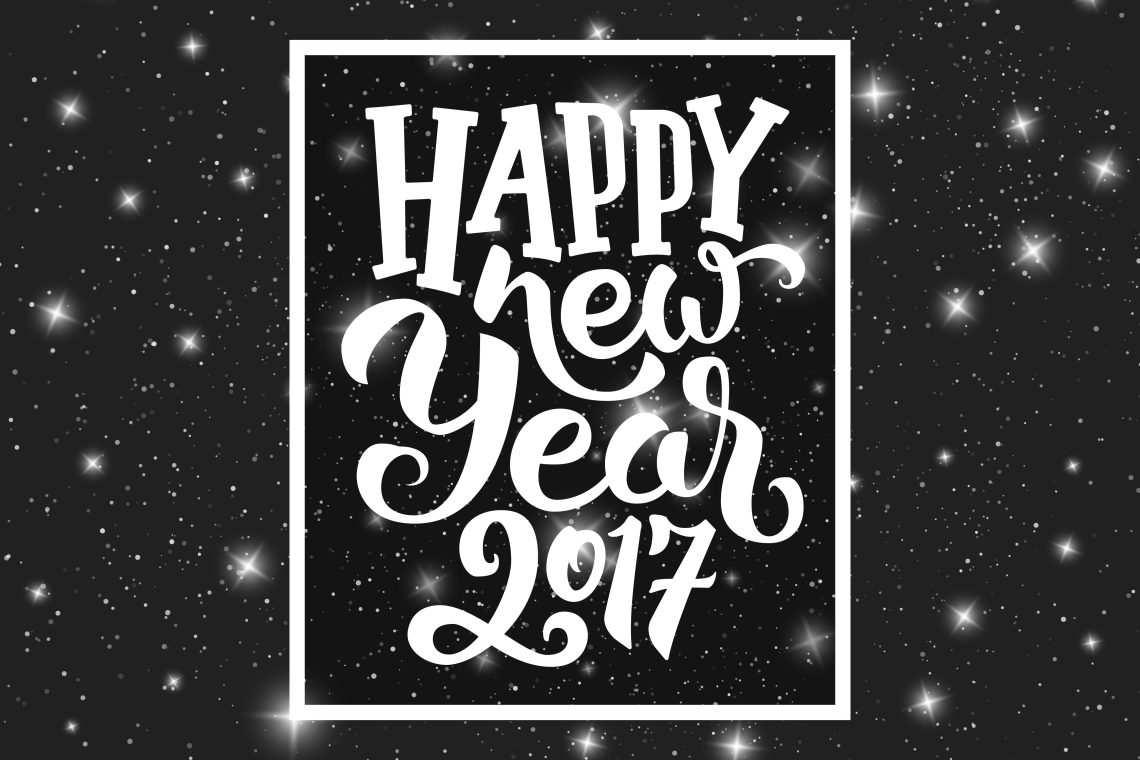Every day I read posts from friends and acquaintances about how much trouble they are having dealing with all the change that the world is throwing at them right now. The pandemic, the slow re-opening of the world, and the fear that at any moment we may be thrown back into an environment where we are stuck at home, isolated once again. It’s a lot. But, whether we want it to or not, life continues to move forward, in whatever way this “new normal” dictates. The stress point comes when we try to go back to the way things were. (Hint: we will never go back to the way things were.). Look, change is hard. We all know that. But I truly think that one of the ways to be successful in life is to learn to not resist change but to embrace it. So how do we do that? Here are some thoughts. Get used to it. The one sure thing in life (besides death and taxes) is that things change. Impermanence is a philosophy that many of us try to fight against. We want to stay firmly in our comfort zones. We instead get stuck in a pattern of meandering through life, firmly planted in our routines and we get grumpy when someone throws a wrench into our plans. What can we do to prevent change? Absolutely nothing, so we might as well get used to it. Learn to go with the flow. Yesterday there was a crew here to install a new liner in our pool. Just when we thought things were going smoothly, the foreman comes to us and says that we need to replace the pool skimmer as well as it’s leaking. Well that’s an extra expense we didn’t want. But instead of fighting it, getting angry, jumping up and down, and cursing our house and everything to do with it, I decided to roll with it. Did I cringe at the amount of extra money this unexpected repair was going to cost? Of course! But after I cringed, I took a deep breath and decided that there’s nothing more I can do except go with the flow. In the end, the repair was made and we’re thrilled with the results, and I didn’t feel any additional stress because things changed on the fly. Live and in the moment. For years, I produced live television shows. Live TV is an interesting beast. Anything that can change suddenly will change suddenly, live, on air, and as a production team you just have to run with it. In live TV there is no “fixing it in post”. You’re out there, warts and all. But there’s an interesting thing that happens in live TV when you just relax and let things roll the way they’re going to roll, and that’s called serendipity. Those are the moments of perfect timing, of the right thing being said exactly when it should be, of a shot working out just perfectly, or even the show ending on time. These things can’t always be controlled and you just need to create space to allow serendipitous moments to occur in your life. So how do we change the way we feel about change? Well, start by realizing that nothing is permanent, and once you do, it will be much easier for you to let go and let serendipity do its marvelous work. What say you? Do you resist change in your life, or embrace it? What are some of your tips. I’d love to hear from you in the comments.
Got Downtime in Your Business? Here’s What To Do
Downtime. We all have it, even if we don’t want to admit it. Downtime in our business might be seen to some as a business that’s floundering. In most cases, that’s not the truth. The truth is, all types of businesses have their quiet times…it might be a few hours, a few days or even a few weeks, but it happens. Now that we’re here in the dog days of summer, a lot of us are experiencing a bit of downtime. People are on vacation, nobody is making decisions, and time seems to stand still as people spend more time daydreaming on hot afternoons than they do in the office. So what’s a savvy business owner to do? Start Something New Remember that podcast you’ve always wanted to produce? Or that book outline you’ve been struggling to find time to write? Or maybe, like me, you have a dusty old blog that needs a little TLC. Whatever it is, your downtime is the perfect time to pick away at it! You never know, a little effort now and it might blossom into something huge! Open New Doors It can be a little more difficult to prospect in the summertime when people tend to be away, but that doesn’t mean you can’t try! Go to your LinkedIn contacts and pick 10 people that you’re going to reach out to in the next week. Set up some coffee dates in your wide open schedule, and see where it takes you! Make a List It’s important during your downtime to stay at least somewhat productive. After all, a mind at rest tends to stay at rest! Even if you’re working from home, get up every day, get dressed, and make a list of things you want to accomplish. Maybe it’s finally getting around to setting up that savings account with your bank (so you can fill it when business picks up again!). Or perhaps it’s cleaning up your Dropbox or Google Drive. Inbox Zero? No time like the present! Put it on your to do list and get it done! Take a Break In this hectic life, we tend to get caught up in wearing “busy” as a badge of honour. But you know what? It’s ok to be not busy once in a while. In fact, when we’re flat out swamped, we long for hours or days or even weeks where we don’t have a lot on the go. So, it’s okay to give yourself permission to take a much needed break. Shut the laptop. Go for a walk. Take a nap. Play with the dog. Everyone uses their downtime differently. Successful business owners know how to capitalize on their downtime, to not only move their business forward, but to rest up for when the craziness ensues again. What do you do with your downtime?
The More Things Change…
I’ve been around this online game for a long, long time. I started designing web sites back in 1996, for fun, then decided to make a career of it. 10 years later I was neck deep in the early days of blogging and Twitter and a plethora of other fledgling social networks (Plurk, anyone?). I’ve seen a lot of things come and go since then, the good, the bad and the ugly…and I wouldn’t trade any of it. The world is a dramatically different place now, but has the online world really changed that much? Sure, there are more networks now and WAY more people on those networks, but I wonder, can we still reap the benefits of using social media even with all the online clutter that exists now? Let’s break it down. Noise to Signal The amount of noise social media makes is deafening, there is no doubt about that. So how do we break through that noise, so that we’re getting the signal we want? It is for sure more difficult now that it used to be, but it IS possible. It just takes time and careful curation. Social media is, after all, still a choose your own adventure game. On Twitter, you can mute keywords, hashtags and entire accounts. It’s how I cleaned my Twitter feed of any and all mentions of a certain President. And what a blissful place Twitter is now! On Facebook, you can unfollow, leave Groups, unlike Pages, and even unfriend, until your feed is what you need it to be. Facebook can be a wonderful place if you get in there and clean it up once in a while. The trick is to decide how YOU want to use social media, and then curate your feeds until they suit you. Yes, there’s a lot of noise out there, but you can drown it out. Trust me. Micro-Connections Social media has always been considered a “Many to Many” form of communication – meaning everyone is talking to everyone. But it’s in the micro-connections we make that the real gold of social media lies. What’s a micro-connection? It’s those small interactions we have with people…it may be a single tweet that gets a single reply. It may be a comment on a blog post, or in a chat forum. It’s that small connection you make with other people as you go about your day. Often they are strangers. Sometimes they are people you’ve never met who gradually, through these tiny interactions, become friends (I’m looking at you Mark Dykeman!). Micro-connections are what makes the social media world go ’round. It’s the phenomena of small interactions with people from far away (or even close by) that makes us all feel connected to each other; whole. It’s how, when an event happens in the world, we all come together to encourage, support, grieve, and commiserate. It’s that feeling you get when you open up your phone, and see your friends, even for just a simple “hello”. Micro-connections enrich our lives, by allowing us to drop in and out of the lives of those around and make real connections that can last a lifetime. Sure, there’s a lot that is different now with social media than say, 10 years ago, but has it really changed all that much? By curating your feeds carefully, and focusing on those micro-connections, you too can relive the glory days of social.
The Art of Luck
That I’m lucky in life goes without saying. I live in the best country in the world, I have a loving family, a wonderful husband, a roof over my head and food in my fridge. Yep, I won the life lottery, and for that, I’m grateful every single day. When it comes to “luck” in my career, though, I feel a bit differently. I’ve had many successes and failures, like anyone, but to be honest, I’m not sure what luck has had to do with any of it. Sure, I’m lucky to have had many supportive people in my working life. I wouldn’t be running my own business if it wasn’t for my amazing business partner and the many mentors I’ve had along the way. But to say that it was luck that got me there is not entirely correct. How to Make Your Own Luck The first thing you should do if you want to be lucky in your career or even in love is to throw away any preconceived notions you have about what it takes to get what you want in life. Because it takes…you guessed it…guts. Every opportunity – and I mean EVERY SINGLE ONE – that I’ve had in my career has happened because I positioned myself in the right place, at the right time, with the right attitude. If I wanted something, I asked for it. No, I didn’t just ask the universe. I asked the actual people that could help me get what I want. Was the answer always yes? Of course not. But if I’d never asked in the first place, I wouldn’t be doing half the things I am today. Success in career and life is all about positioning. It’s about seeing an opportunity and jumping in with both feet if it feels right to do so. It’s about not resting on your laurels and expecting that the world will hand itself to you on a silver platter. It’s about being willing to take on tasks and roles that may not be exactly what you want, as a stepping stone to what you do want. Is it scary? Sure as hell. Being lucky in life is not for the faint of heart. It’s putting yourself out there, time and again, asking for what you want, and then accepting it in whatever shape or format it comes. Luck is for lottery winners. For the rest of us, it’s hard work.
Adding More Structure to My Workday: An Experiment
I’ve heard it said that when it comes to success in business, you live or die by your calendar. Striking a balance between client work, marketing work, admin work, and “me” work has always been a struggle for me. I go into my days with a solid to-do list and tend to accomplish much – most days. Other days are a crap-show of missteps and changes of direction, and that to do list just doesn’t get done. My biggest issue is email. I have a bad habit of checking too often, of making my email my task list, and getting all too overwhelmed by the volume of communication coming at me in a given day. That alone has been my motivation for wanting to change things up a bit. But what if my days were more structured? What if I blocked off time for certain tasks, and focused on just those tasks during that time? I decided to try an experiment. I reorganized my calendar to look something like this: This is a high level view, but it basically shakes out like this: I devote time each morning to writing tasks – my blog, web content, social media content for myself or my company, whatever needs to be written. I check and process email 3 times a day. That’s it. I have one block a week to focus on business development, and another focused on administrative work (on Friday afternoons so I can have a beer while I do the tedious stuff). I block off time for lunch each day (a vitally important thing that I often overlook). The rest of the time is devoted to client work, whatever form that takes (I refer to and prioritize my to do list for these chunks of time). So how’s it working so far? Actually, better than I expected! Organizing my days means that by the end of the week I’ve accomplished a bunch more than I tended to in the past. Checking email less frequently means I’m not driven by my inbox. Instead, I’m driven by the tasks that need to be accomplished in any given block of time. I challenge you to try something like this for yourself! Blocking your time puts you back in control of your schedule. It means that other people can’t come along and take command of your calendar. And ultimately it means achieving a great deal more of the important work in a week. Let me know how it goes!
Are You in Business for the Right Reason?
I’ve been an entrepreneur for more than 14 years. In that time I’ve learned a lot about business, and I still have a lot more to learn. Occasionally I like to sit back and reflect on things…how far we’ve come, how much further we have to go, where the new opportunities lie, and so on. I am part of a number of active online groups around business and entrepreneurship, and most of the time those groups inspire and motivate me. However, I’m seeing a worrisome trend in some of these groups, as entrepreneurs talk and share about their businesses. I’m just here for the free doughnuts. Are you doing business or playing business? This is a really critical question and one you should ask yourself often. I see this kind of thing posted online all the time: “Busy! Today I’m going to write 6 blog posts to promote my business, then put out my email newsletter, then visit my Facebook groups and engage.” Now, I’m not saying that marketing your business is a bad thing. In fact, it’s really really good. However, if you’re spending too much time doing things like “engaging” on Facebook and not enough time actually building something, it’s going to be a tough go. If you spend your days “playing” at your business you’re not “doing” business. Why are you in business? Now, you might answer this question multiple ways: “To help and serve my customers.” “To feel like I’m part of something bigger than myself.” “To do what I really love to do.” That’s all fine and well. But the hard truth of the matter is, you need to be in business to, first and foremost, MAKE MONEY. If you’re not making money, you’re not in business. You’re playing. Yes, all of those other things are good reasons to be in business too, but they aren’t the most important thing. If you run a business, and it doesn’t make you at least some money, then you’re a volunteer. But can’t I have my cake and eat it too? Yes, you can. But you won’t be able to afford cake if you aren’t making money. So, do what you love, for sure. Help and serve people, for sure. Be part of something bigger. But remember, being in business is about making money. Everything you do for your business should point towards how you’re going to win new business. If it’s not, then take a long hard look at why you’re doing this in the first place. The bottom line is, well…your bottom line.
Improve Your Social Media Strategy With This
Strategy. It’s the fundamental piece of your desire to do social media well. Everywhere you look, consultants of all shapes and sizes are telling you that you need a strategy or you won’t succeed. I mostly believe that. However, I also believe that a lot of strategies are misguided. It’s about much more than just downloading a template and filling in the blanks. Real strategy development takes research, thought and care. And even when those pieces are there, there’s still something missing from most of the strategies I see. Let’s start at the beginning. Creating a social media strategy helps you to determine WHAT you’re going to do to achieve a set of goals. It lays out those goals and matches the what to those goals. It considers your audience and the channels on which you’ll communicate. It determines outcomes and sets up measurements so that you know when you’ll be successful. Here’s an example: I want to promote my online flower shop using social media tools. My goal is to increase brand awareness and up my sales by 20% within 6 months of starting my campaign. I decide to use Instagram and Facebook (the WHAT) to achieve this. I’m going to build an engaging presence and position myself as an expert on flowers. I’ll track retweets and mentions and hashtags and my web site traffic to monitor my progress. That’s all great, but there’s more. Where many strategies fall short is not at the WHAT. Where they are lacking is in the HOW. It’s all fine and well to know what you’re going to do. But how you’re going to do it is the key piece of the puzzle that most strategies are lacking. If you don’t know HOW you’re going to implement your strategies, you run the risk of those strategies never getting off the ground. So how do I determine the how? Once you’ve lined up your strategy (i.e. posting valuable content to Instagram and Facebook), think about what comes next. Make a list of the actual tasks you need to do in order to implement the strategy. Something like this: Instagram Tasks Open account Upload profile pic Do hashtag research Add first 10 posts with captions and hashtags Follow relevant accounts Then you can take it a step further, by estimating how long it’s going to take you (or the person you delegate tasks to) to accomplish each task. Instagram Tasks Open account (5 min) Upload profile pic and bio (5 min) Do hashtag research (2 hours) Add first 10 posts with captions and hashtags (2 hours) Follow relevant accounts (2 hours) Total: 6 hours 10 minutes Once you have a time estimate, you can multiply that by your hourly rate and voila! You have what’s required to start putting together a budget or a quote for a customer. Your strategy is a living, breathing thing A good strategy determines WHAT you’re going to do. A great strategy also determines HOW you’re going to do it. Practice with this by revisiting some of your previous strategies. Follow through the process and see what you come up with. Let me know how it goes!
How Social Media Has Evolved
I’ve been using social media since 2006 when I started this blog. I got on Twitter in 2007 and was one of the first million users of the platform. For 11 years I’ve been fascinated by social media, and I’ve managed to integrate it into my work with Algonquin College as a professor, as well as Jester Creative, as a consultant and practitioner. I’ve experienced the ebb and flow of different platforms and watched them transform from simple and rudimentary to complex and multi-faceted. It’s been an interesting evolution. In the early days, there seemed to be only a few voices. Now there are hundreds of millions. This has changed the landscape of communication on these platforms, and it’s meant one has had to evolve their strategies for communicating effectively along with the evolution of the platforms themselves. So what’s different now, and how has social media evolved? Let’s take a look at a few key things. It’s ubiquitous. You cannot turn on a television or radio, pick up a newspaper or go on the internet without seeing some reference to social media. From Twitter to Instagram, Facebook to Snapchat and more, these platforms have taken over as a key way to communicate with each other and with the masses. There are those that still maintain that social media is no more than a fad, and that it will die off eventually. But the truth is, it’s become the 4th medium (TV, radio and print being the others). It’s not going anywhere, and will only continue to become more powerful as a way to share and disseminate information. It’s influential. Big name celebrities aside, social media has created its share of influential folks over the years. The fascinating part is that these influencers exist in really niche spaces. From self help to cocktails, and entrepreneurship to work/life balance, influential people have popped up everywhere. These are ordinary people who have found their voice online. They have true fans and even detractors, but they share one thing in common – they built what they have on their own, most of the time without the help of mainstream media. The ability for anyone to share their thoughts and ideas anytime, is one of the biggest advantages of social media. Anyone, and I mean anyone, can become influential in their niche. It takes hard work but it is possible and more and more people are realizing this every day. It’s changed our behaviour. For better or worse, social media has changed our behaviour. We watch television and movies with our smartphones or tablets in our hands. The “second screen” as it’s called, is a phenomenon that I don’t think anyone could have predicated 10 or 11 years ago. It’s split our attention in a very interesting and compelling way. It’s turned watching television and movies from a passive activity to a much more active one. In other ways, social media has changed who we interact with. I know that I’ve reconnected with friends that I would never have otherwise reconnected with. Now we know on a daily basis, what’s happening in each others’ lives. We make new friends via social media too. I can’t tell you how many people I know that I met through Twitter. Probably a couple of dozen, maybe more. Social media has made us act and interact differently. Our social skills have changed fundamentally. It’s really quite amazing when you think about it. So what does it all mean? Well, I think we’re still learning what it means. But there’s no doubt that social media has changed a lot of things in our society, and it will continue to do so as tools and technologies evolve. What say you? How has social media evolved for you? Do you use it differently now than you did, say 5 years ago? I’d love to hear what you think.
My Three Words for 2017
Happy new year! 2017 is here at last, and we now have 365 days ahead of us to make a difference. As is customary each year, I kick things off by listing my 3 words – guiding words for the year that will help keep me focused on what’s important. I started this tradition several years ago when my friend Chris Brogan first published his three words. I’ve found it an immensely helpful practice and one that I highly recommend to others. But first, let’s do a little revisit to 2016. My three words for last year were Planning, Direct, Discipline. How did I do? Well, some weeks were better than others. But I did manage to get my schedule under control and that was a big one for me. I had been over-committing and over-scheduling myself into oblivion, meaning I had little to no juice left for the things that were truly important. I reduced my extra-curricular activities, namely leaving the comedy festival I was working with, and finishing up with the band I was in. While it was tough to say goodbye to these projects I enjoyed so much, it was important to my mental and physical heath to back away from these things, so I could focus more on my business, my family and my friends. I am happy to report that I’ve found a new hobby (all work and no play makes Suze a dull girl), volunteering with the Sit With Me Dog Rescue as a transport driver and helping out at events. I truly enjoy it. 2016 was not without its challenges. My father in law passed away in September, and my friend Bob Goyetche passed away too. It made for a pretty sad Autumn, but it also served as a reminder that tomorrow is not promised. So live every day to the fullest and don’t waste time on things that don’t bring you joy. Now, onto 2017. My three words for this year are Create. More. Value. Create: This is something I want to do a lot more of in 2017. In 2016 I kind of let this blog go, as I felt I’d run out of things to say. But I’m entering this new year with a new attitude. I DO still have things to say. They may be different than the things I’ve talked about before but I’m willing and ready to make that shift. So you will see more writing here, and maybe some other types of content too. I also will create more content for my business, revitalizing our social media presence, blog and more. Creating is something I have missed out on in the past while, and that is about to change. More: More means more everything. Produce more content, spend more time with people that I love, do more work on the business, get more rest. Live more life. This word is about overcoming those things that have been holding me back (I’m looking at you, anxiety), and getting more out of life. Value: This word is a big one for me. Not only do I want to create more, but I want to create more things that are of value to people, whether those people are my friends and family, my blog readers or my clients. Value is a word that will define everything I do in 2017. If I’m not creating value, I’m not going to do it. It’s that simple. Now, you may have noticed that my three words also create a sentence. That’s intentional. Because in 2017 I want to create more value in everything I do. There you have it! My three words for 2017. Feel free to share yours below and may you have a wonderful and prosperous new year.
Why I Teach
My friend David asked me the other day, “How did you get into teaching and why do you continue to do it?”. It’s an interesting question, and one that I don’t often consider. Teaching is just something I’ve always done. My first experience with teaching, albeit rather informally, was when I worked for Skyline Cablevision/RogersTV as a producer back in the early 90s. The majority of the people who worked on productions at the TV station were volunteers, and they needed to be trained. So I conducted workshops and did on-the-job training for probably hundreds of volunteers over the years. That’s where I cut my teeth as a trainer.. It seemed I had an aptitude for teaching, because flash forward a few years to the early 2000’s and I was hired at a private training firm to teach web design, and I was also brought into Algonquin College to teach in the same Interactive Multimedia program I’d taken in the late 90s. My first few classroom-based courses were rough, I’ll admit – not because I didn’t know my subject, but because classroom control is a learned skill! But I persevered and eventually I was able to be in control from start to finish. I took a break from Algonquin for a few years to start our business. And to be honest, I went back because I personally needed more cashflow. My bank account and I were both thrilled when I was offered a couple of courses, teaching video production and social media. It was this time around that I really honed my skills and developed a real passion for teaching. I felt like a real professor! I WAS a real professor! I started to experiment with delivery methods, including flipping my classroom. I learned more and more about what students needed in order to be successful. To this day, I love every minute of my teaching work (well except maybe the marking!). To answer the question, why do I do it? Because every single time I step foot in the classroom, I learn something new about myself and my students. Having to teach things to someone else forces me to keep my own skills up. And because there is no better feeling than when I help someone have a “lightbulb moment”. Teaching isn’t something I choose to do. It’s something I HAVE to do. I believe it’s part of my purpose. And that’s a really, really good feeling.









